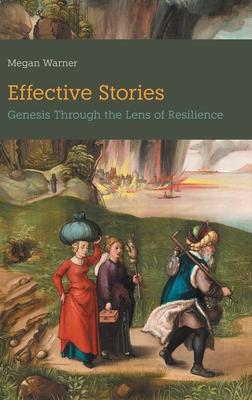This book is the first monograph-length reading of a biblical book through the lens of resilience. Megan Warner first defines the lens and outlines its boundaries, before training it upon Genesis-to draw new, and often surprising, meaning out of a much-mined text. This innovative reading responds to the need for sustained readings of biblical text, not just in the spheres of resilience and vulnerability, but also in the closely connected interpretative field of trauma. Warner demonstrates that the authors and editors of Genesis wrote and presented 'effective stories'-i.e. stories designed to effect change. The devastation of the destruction of Jerusalem, the exile and dispiriting return are nowhere explicitly addressed in Genesis. It relates the history of much earlier events. Nevertheless, this reading exposes intimate engagement with these seminal disasters and the formulation of responses to them. Genesis reaches back into ancient history for the purpose of preparing a new and resilient road into an uncertain future.
Amongst the contributions of this volume are: - a presentation of Genesis' two creation stories as concerted and complementary responses to the Babylonian crisis; - the identification of an extensive book-wide project, focused on Abraham, to present a history of a united (albeit Judah-centred) Israel designed to challenge the Mosaic Yahwisms of the pre-exilic and exilic periods; - exploration of patterns of use and recruitment of female characters for political means; and - a sustained reading of the resilience of a single character, Joseph.
Warner's critical approach exposes limitations of the use of resilience as lens, but ultimately demonstrates its potential to go beyond trauma-centred approaches, to recognise innovative, practical and above all, effective, strategies for the construction of viable futures.
